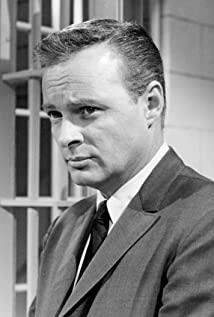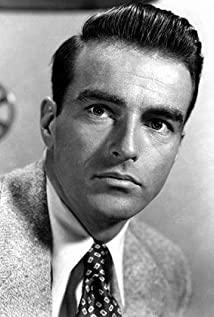First of all, the film didn't tell us clearly from the beginning to the end, what was the crime of the four German judges indicted by the court? I think it should not be the crime of murder. If it is the crime of murder, obviously, they should be tried by the courts under the new German government after the reorganization of the German government. Even the victorious nations of Britain, the United States, France and the Soviet Union have no jurisdiction to try this. Four German judges. Because these four judges preside over the trial work in Germany, even if their behavior is equivalent to assisting in the killing, the killer is also a national of Germany. What qualifications does a foreign court have for a murder committed against a German national in Germany? What about jurisdiction?
According to the Nuremberg Trial in real history, the victorious nation’s trial of German war criminals prosecuted two crimes, namely "crimes against humanity" and "crimes against humanity." These two crimes are crimes recognized in international law. Since they violated international law, the four countries of Britain, the United States, France and the Soviet Union certainly have jurisdiction to try war criminals in Germany. But wait, the new problem comes again. Because in fact, the two crimes of "crimes against humanity" and "crimes against humanity" were officially defined in the "London Charter" signed in 1945 after the end of World War II. Prior to this, traditional international law had never punished individuals but only punished the country. Individuals could only be handed over to the country’s judicial organs to initiate litigation under the system of domestic law.
An important principle of modern criminal law is that "the law is not retroactive." That is to say, an act has not been deemed guilty before, and the law only stipulates that such an act is illegal after the act has occurred, so the newly established law cannot punish the previous act. The purpose of the establishment of the principle of non-retroactivity of the law is to maintain the predictability of ordinary citizens to the law. As long as the law does not prohibit them, they can do it with confidence, without worrying about the day when this behavior is suddenly considered a crime. This is also the difference between criminal law and morality. Morality is that an act that violates the inner conscience and still does it can be condemned; while the criminal law is that as long as an act does not violate a certain law, even if you know that it may be wrong in your heart, you should not Be punished.
From the perspective of the principle of "the law is not retroactive," the use of new charges established after World War II to punish behavior during World War II is clearly against the spirit of the US Constitution.
Therefore, as Rulf pointed out at the opening of the court, the legality of this trial is questionable, and whether the judges of the United States, France and the Soviet Union really have the jurisdiction to try the Germans is also questionable.
Well, even if we don’t look at this issue from the legitimacy of legal procedures, but only from the perspective of substantive law, whether the actions of the four German judges in the film are really "accountable" is very important. Controversial.
From the perspective of the four elements of the criminal law, an act that is finally determined to be guilty must meet the subjective, objective, subject, and object elements; from the perspective of the three aspects of the criminal law, an act that is deemed guilty must also meet the constitutive requirements. , Illegal and responsible. Just as their defense attorney Rulff is committed to defending-subjective elements or accountability-is the biggest weakness in finding their actions guilty.
If I were their defense lawyer, I would also choose Rulf's defense strategy, and I would like to talk about whether their subjectivity is really expected or whether their behavior is really responsible.
The judge is not the maker of the law, but only the executor of the law. Moreover, the duty of the judge is precisely to require the judge to faithfully implement the law enacted by the country, even if the law contradicts his morality. As for the results caused by these laws, judges should not be held accountable, but the parliament that makes the laws is responsible for them. Isn’t this the essence of the separation of powers? Shouldn't a competent judge set aside his own subjective feelings and sense of justice, judge cases in strict accordance with the law, and never question the correctness and authority of the law?
Is it possible for us to say that a person is breaking the law because he is abiding by the law? A person should be punished by the law because he loyally performs his duties prescribed by the law? Isn't this the biggest paradox in the history of the rule of law?
On the other hand, one person said that because I do not recognize a certain law in our country, I can not comply with this law and should not be punished. Is this possible? For example, if a Christian believer opposes abortion and family planning strictly in accordance with religious doctrines, can he ignore Chinese laws and want to have a few births? Is he going to destroy the abortion hospital without any responsibility? In fact, no matter what position and viewpoint he holds, he has to abide by the laws of his country unless he goes abroad.
So for an ordinary person, it is even more impossible for a judge of a country, the highest judicial referee, to ask him to act freely in accordance with the morality of his heart, regardless of the laws promulgated by the country?
To illustrate this problem with a more extreme example, a death executor, which is what we usually call an executioner, is his duty is to kill the person sent to him, and whether this person is guilty or not, is it a wrong sentence? , Do you need him to distinguish? He obviously has no obligation to distinguish. If it turns out that the person he killed was actually the victim of an unjust, false and wrongful case, or simply a politically persecuted dissident, then should the executioner be held accountable for the murder? This is obviously absurd.
Because his actions were based on their duties and the provisions of the law, and they only acted faithfully in accordance with the law, so although their actions caused evil results, the responsibility for the evil results cannot be held to them anyway. You can't expect them to avoid evil consequences by deliberately failing to comply with their duties and illegal behavior. This is what I said, their subjective elements do not have the possibility of expectation, and their behavior is not responsible.
Of course, the prosecutor in the film, Colonel Lawson, has a view that because these judges are social elites who are truly proficient in the law, they should know the nature of the Nazi laws better than the general public. It should be understood that these Nazi laws are anti-legal in nature. However, they adopted a laissez-faire attitude, sitting by and watching the evil consequences happen, so they were actually complicit in the Nazi crimes, or at least a connivator.
We also use the executioner analogy. According to Colonel Lawson, the executioner knew very well that the prisoner sent to death was an innocent person, but the executioner still executed the death sentence and killed him. Should the executioner be considered an accomplice of the murder at this time?
I think it is still reluctant. Because it is still a matter of expecting the possibility. What might we expect the executioner to do in this situation? Is he going to save the prisoner? This is impossible, because even if the prisoner is indeed innocent, but at this moment, he is still a death row prisoner recognized by the national law, and saving him is tantamount to breaking the law. It is impossible for an executioner to violate the actual law because of his inner conscience. This is obviously too high for a person.
So for those judges, I think the same is true. Although they know that these laws are "draconian laws," they are also laws formulated by the national legislature in accordance with normal procedures. They still enjoy the effect and authority of the law. How can we expect these judges to, because of their own principles of justice, And choose to deliberately violate these laws?
So my final conclusion is that in the end Judge Haywood sentenced all four of them to guilt and sentenced them to life imprisonment, which lacked legal basis. And obviously, Judge Haywood is a believer of the school of natural law, but the theory of a school is obviously not the basis for the court's decision.
View more about Judgment at Nuremberg reviews











